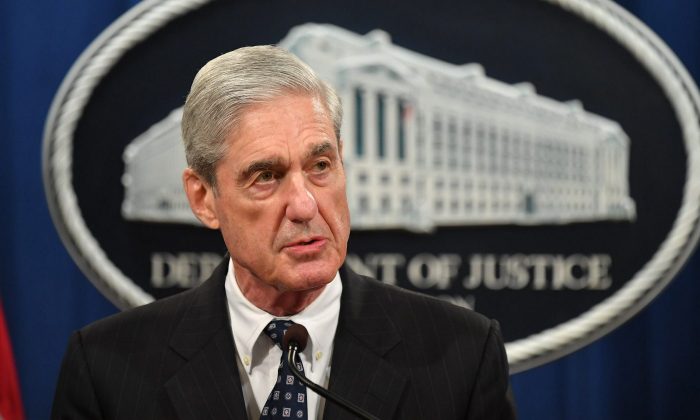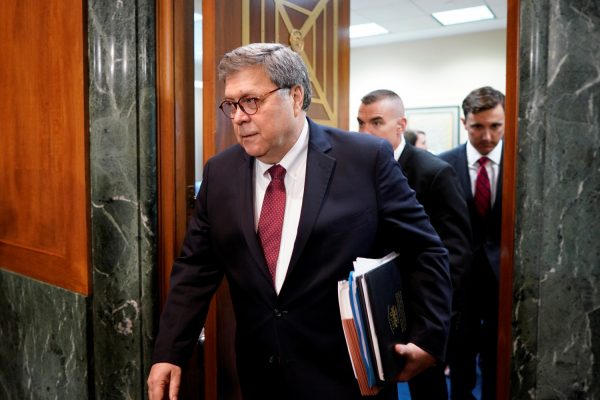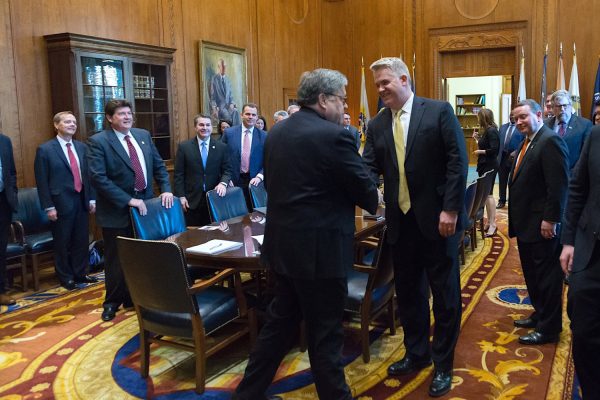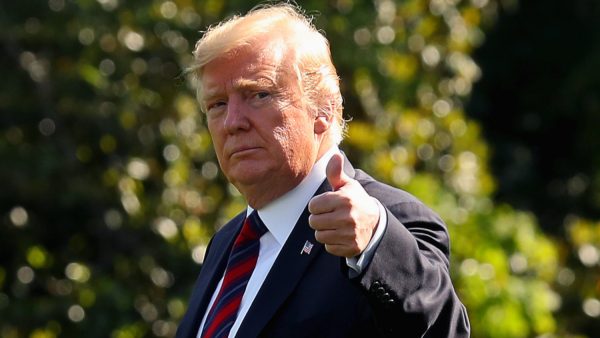
DOJ, Mueller’s Office Release Joint Statement About Special Counsel’s Comments
“The Special Counsel’s Office is part of the Department of Justice and, by regulation, it was bound by that Department policy. Charging the President with a crime was therefore not an option we could consider. It would be unfair to charge someone with a crime when there could be no court resolution of the charge.”

Mueller’s team examined 10 instances it said may have constituted obstruction and presented the findings to Barr and Deputy Attorney General Rod Rosenstein.
Barr said earlier this year that if Mueller felt he couldn’t make a traditional prosecutorial decision, he shouldn’t have taken the special counsel job.
He also said that since Mueller’s team punted on the decision that he and Rosenstein were duty-bound to make the determination and did so after examining the evidence presented by the special counsel.
“Although the deputy attorney general and I disagreed with some of the special counsel’s legal theories and felt that some of the episodes examined did not amount to obstruction as a matter of law, we did not rely solely on that in making our decision. Instead, we accepted the special counsel’s legal framework for purposes of our analysis and evaluated the evidence as presented by the special counsel in reaching our conclusion,” Barr stated.
Read More
“In assessing the President’s actions discussed in the report, it is important to bear in mind the context. President Trump faced an unprecedented situation. As he entered into office, and sought to perform his responsibilities as President, federal agents and prosecutors were scrutinizing his conduct before and after taking office, and the conduct of some of his associates. At the same time, there was relentless speculation in the news media about the President’s personal culpability. Yet, as he said from the beginning, there was in fact no collusion.”

Now the department is looking into the origin of the spying against Trump by the previous administration, including the use of human informants such as British professor Stefan Halper.
Trump on May 23 authorized Barr to declassify campaign surveillance documents while Barr reportedly appointed a U.S. attorney to investigate whether the spying was legal.
Barr said recently that “some of the explanations of what occurred” haven’t added up.
“People have to find out what the government was doing during that period. If we’re worried about foreign influence, for the very same reason we should be worried about whether government officials abuse their power and put their thumb on the scale,” Barr continued. “I’m not saying that happened but it’s something we have to look at.”
The Department of Justice and the special counsel’s office released a joint statement on May 29 hours after special counsel Robert Mueller spoke for the first time since submitting his report to Attorney General William Barr.
“The Attorney General has previously stated that the Special Counsel repeatedly affirmed that he was not saying that, but for the OLC (Office of Legal Counsel) opinion, he would have found the President obstructed justice. The Special Counsel’s report and his statement today made clear that the office concluded it would not reach a determination—one way or the other—about whether the President committed a crime,” said Kerri Kupec, spokeswoman for the Department of Justice and Peter Carr, spokesman for the special counsel’s Office, in the joint statement.
“There is no conflict between these statements,” they added.
The statement was about the possibility of charging President Donald Trump with obstruction after Mueller’s team found that no conspiracy or cooperation between Trump’s campaign and Russian actors occurred.

Initially tasked with probing Russian interference in the 2016 presidential election, Mueller later focused on obstruction.
Reading from a written statement on Wednesday, Mueller defended the probe into allegations of obstruction by Trump, saying his team’s investigation was “of paramount importance” and that anyone who tries to obstruct an investigation “strikes at the core of the government’s effort to find the truth and hold wrongdoers accountable.”
At the same time, Mueller struggled to explain why his team had not made a traditional prosecutorial decision, claiming that it didn’t have an option to charge the president with a crime even if it had found sufficient evidence.
“We did not, however, make a determination as to whether the President did commit a crime. The introduction to volume two of our report explains that decision. It explains that under long-standing department policy, a President cannot be charged with a federal crime while he is in office. That is unconstitutional. Even if the charge is kept under seal and hidden from public view—that too is prohibited,” he said.